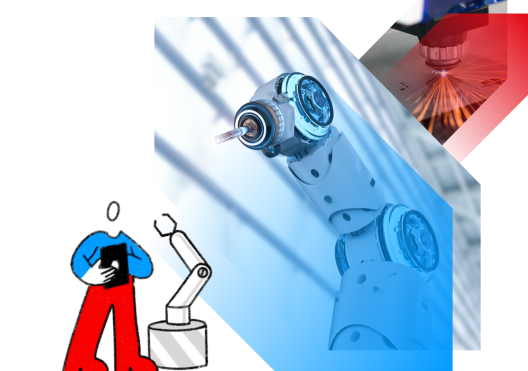It’s no surprise that with its rich history in steel production, highly educated workforce, and business-friendly environment, Luxembourg is flourishing as a manufacturing nation.
Ever since the creation in the early 20th century of Arbed, which would go on to become steel giant ArcelorMittal, Luxembourg’s manufacturing sector has been a major economic driver of the country. Today there are dozens of important manufacturers in the country, producing a wide array of products including tyres, electromechanical components, gas valves, and cigarettes. The country also has a thriving materials industry responsible for high-performance steel, plastics, composites, glass, and adhesives. Several international manufacturing companies are headquartered in Luxembourg, and the country is home to many R&D facilities and publicly funded research centres that support the industry. These include the Materials Research and Technology Department (MRT) at the Luxembourg Institute of Science and Technology (LIST) as well as the University of Luxembourg, which houses a Physics and Material Sciences Research Unit and a Research Unit in Engineering.
The sustained growth can be attributed to several factors, notably the country's excellent infrastructure, centralised location that is ideal for logistics, highly skilled workforce, and business-friendly environment. The government is taking steps to prepare the sector for the future and help manufacturers adopt next-generation technology to maintain their competitive edge. These innovations include high-performance computing and digitally enhanced and connected plants: the hallmarks of Industry 4.0. These technologies will help to boost productivity, promote energy efficiency, and increase competitiveness.
Luxembourg: home to some big names in manufacturing
The biggest name in manufacturing in Luxembourg is ArcelorMittal, formerly known as Arbed, which is the country’s sixth-largest employer and the world’s number one steel manufacturer. The Grand Duchy is also home to a Goodyear plant, built in 1949, as well as the company’s only R&D facility outside of the U.S. Other big players that have major plants operating in the country are global leader in gas valves Rotarex, which was founded in Luxembourg in the early 20th century; injection-moulding giant Husky; adhesives producer Avery Dennison; glass manufacturer Carlex Glass; plastics innovator DuPont; household cleaner maker McBride; global composites leader Euro-Composite; and Cebi, which is an internationally renowned expert in electromechanical components for a wide variety of applications including automobiles and appliances.
Industry 4.0
Industry 4.0 is the fourth stage of the industrial revolution, according to many observers, and it involves a shift toward automation, cyber-physical systems, digitalisation, and smart machines that make decisions without direct human involvement. Luxembourg companies have for a long time been at the forefront of technological innovation, and the shift to Industry 4.0 is no different. Manufacturers in the Grand Duchy have already geared their production processes toward this major transition. Goodyear has chosen Luxembourg to carry out its key Industry 4.0 projects, and it’s working closely with the Ministry of the Economy and LIST to ensure it remains on the cutting edge. ArcelorMittal is marching toward the future with huge investments in digitalization. Smaller companies like sensor manufacturer IEE, which employs around 650 people in Luxembourg, are leading the way towards data and connectivity with health sensors, smart footwear, and seatbelt detection systems.
The government is providing major support for this shift to Industry 4.0, and one way it’s accomplishing this is through LIST’s Smart Manufacturing programme, which provides assistance to industry in the areas of composite materials, additive manufacturing, as well as technologies to make plants more digital and connected. Some of the big-name partners in this endeavour include Goodyear, ArcelorMittal, Dupont, Toyota, L’Oréal, Nestlé, and Unilever. Another initiative that aims to help local manufacturers to prepare for Industry 4.0 is Digital for Industry - Luxembourg (D4I). D4I’s collaborative strategy is threefold: create awareness and provide information about the risks and opportunities related to Industry 4.0; identify challenges and promote the adoption of Industry 4.0 concepts; and initiate projects and showcase their value among the manufacturing community. The Luxembourg Digital Innovation Hub (L-DIH) organises biweekly talks for industrial companies in Luxembourg, with each talk breaking down the steps needed for digital transformation.
Stay informed! Sign up to receive our latest updates.
Planning your event in the Grand Duchy? We'd love to help.





